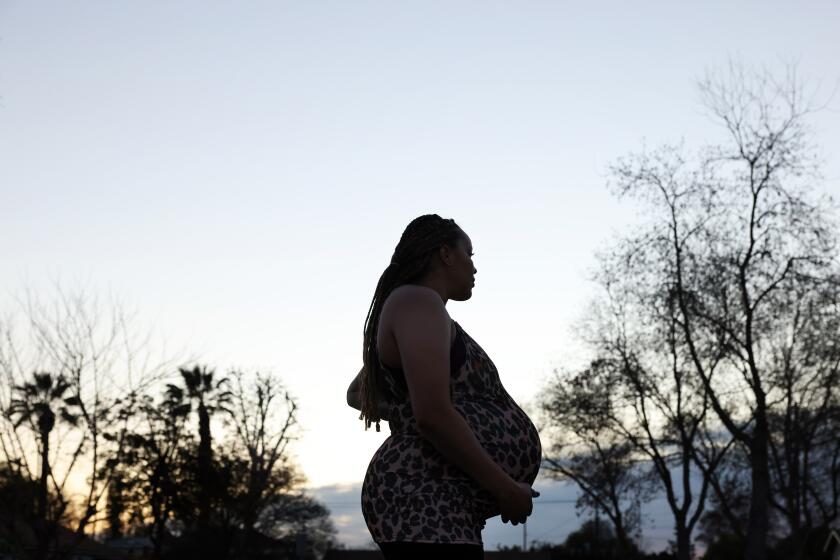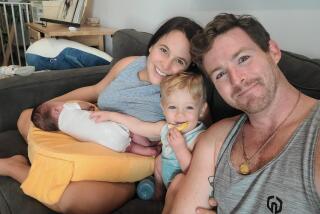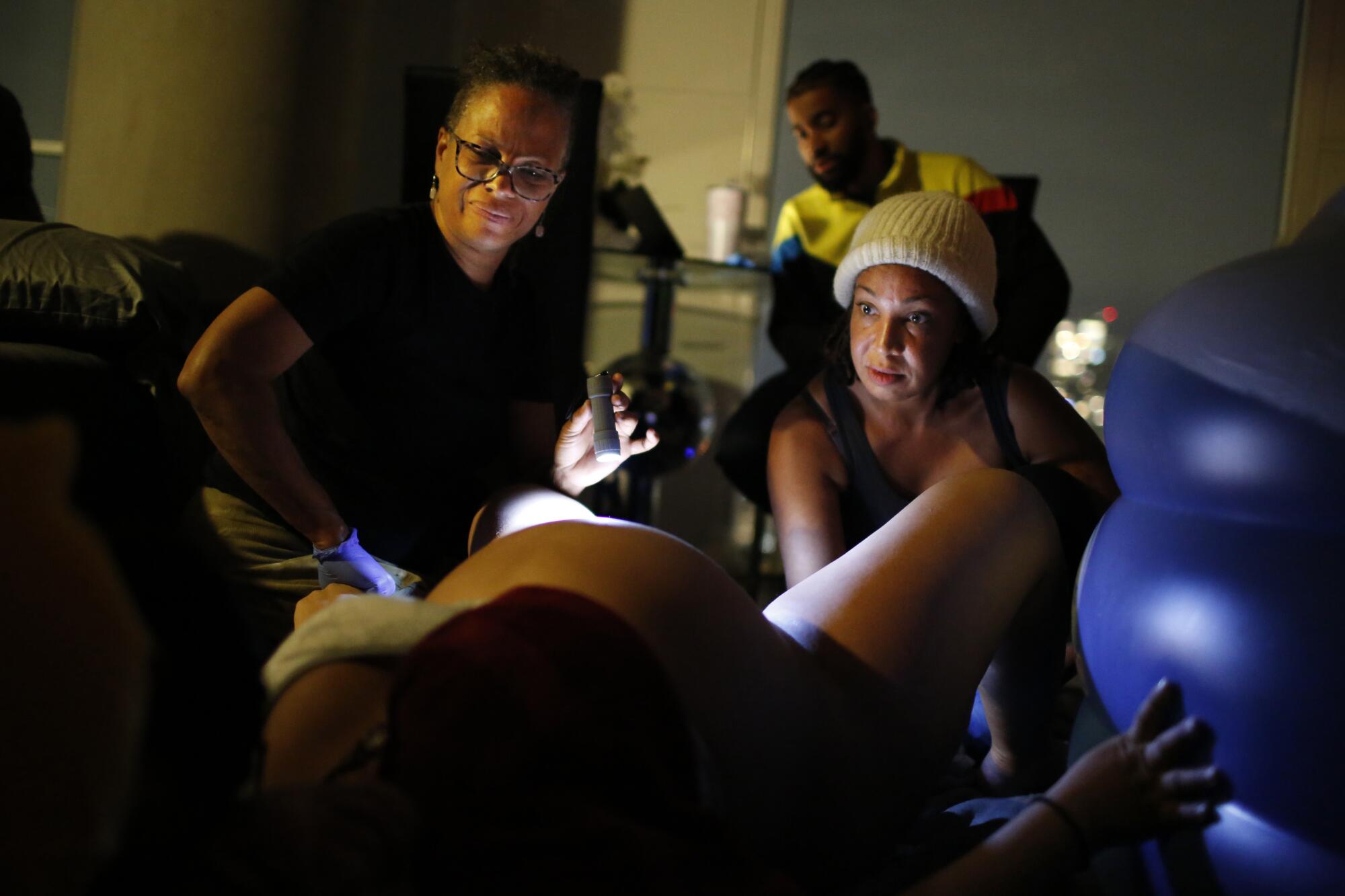
- Share via
Last summer, as deaths from the COVID-19 pandemic were spiking, I was looking for a story about life when I came across a GoFundMe page where two Black midwives, Allegra Hill and Kimberly Durdin, were raising money for a birth center called Kindred Space LA in Hyde Park.
At a time when people of color were disproportionately being sickened and killed by the pandemic, Allegra and Kimberly were bettering life from the core, caring for mothers and their infants. My goal was to document their important and compassionate work. What I didn’t expect was how their story would affect me as a journalist and a mother.
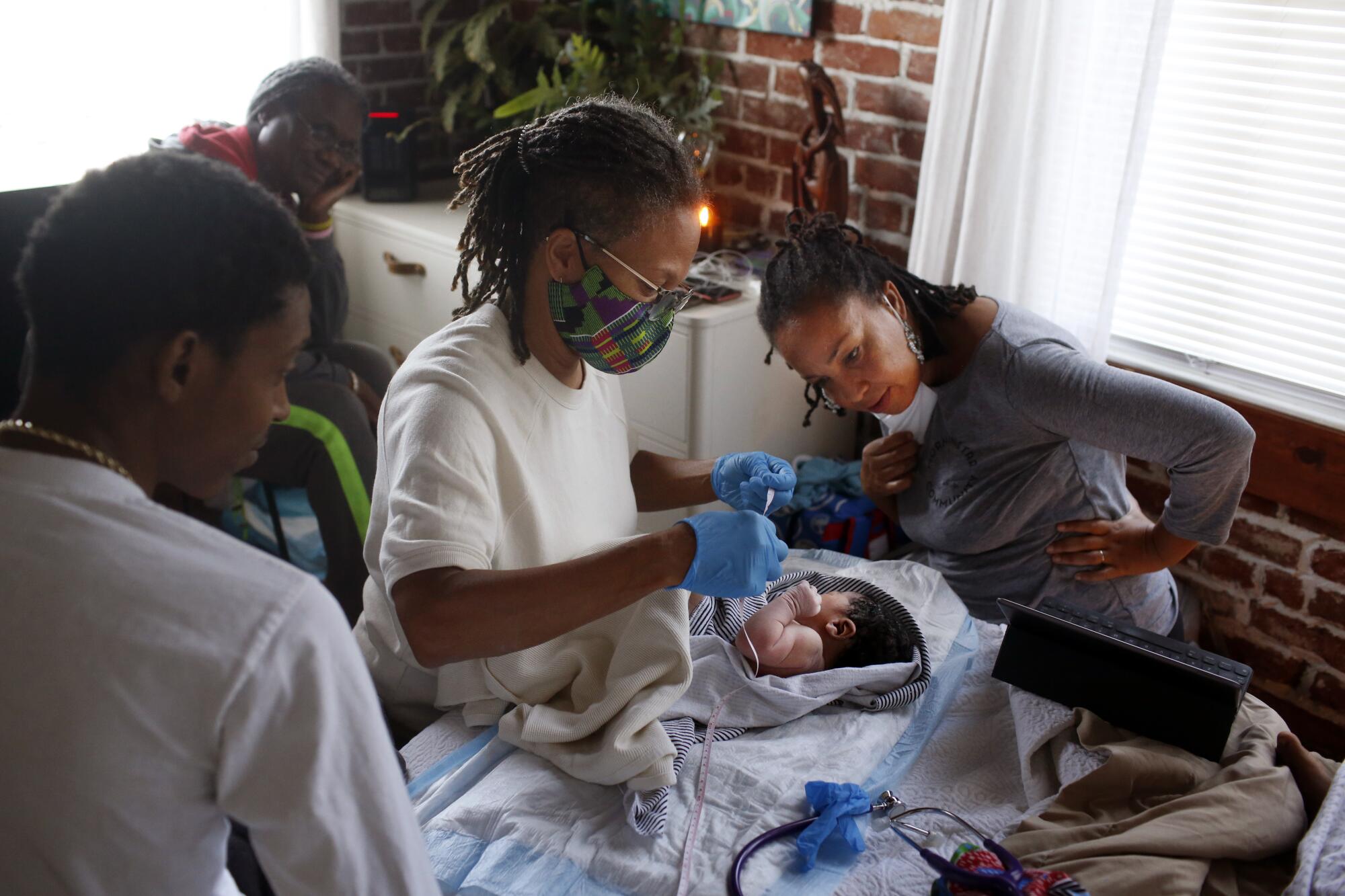
A few months after starting to photograph this story, I became pregnant with my second baby. I continued appointments with my obstetrician, which because of the pandemic were boiled down to the essentials. My husband wasn’t allowed to come with me. My body and pregnancy felt like a medical condition that needed expedient treatment, not like joyful preparation for the arrival of a new life.
An L.A. birthing center aims to bring Black women the comfort of feeling valued and understood.
Simultaneous to my own prenatal appointments, I photographed clients at Kindred Space LA. Tamara Robertson once brought her four boys, partner and her little brother to a prenatal. Midwife Kimberly offered tangerines, asked Tamara’s partner what he was feeling and suggested ways the boys could help their mom.
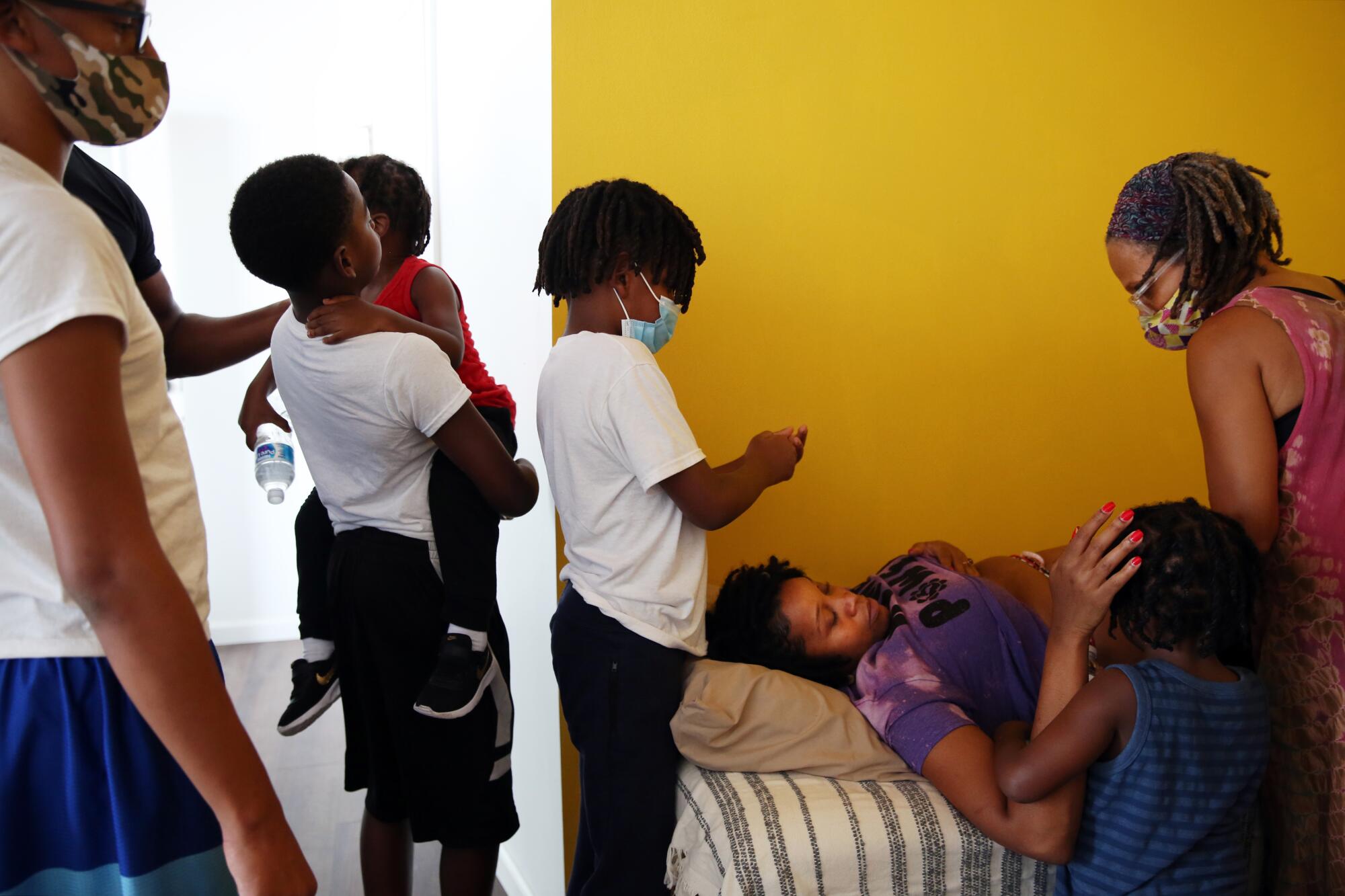
The midwives speak about how a birth is a birth for the entire family, in contrast to my OB-GYN appointments, where the only person involved was me.
After photographing Aijalon Redd’s prenatal appointment in March, Allegra asked if she could check my baby. She laid me down and listened to the heartbeat and then to me. She asked what I was feeling, and I shared how my husband and I sometimes have differing views on child-rearing. She listened and offered her presence. I was treated like a human, not just a body — or just a photographer capturing her story.
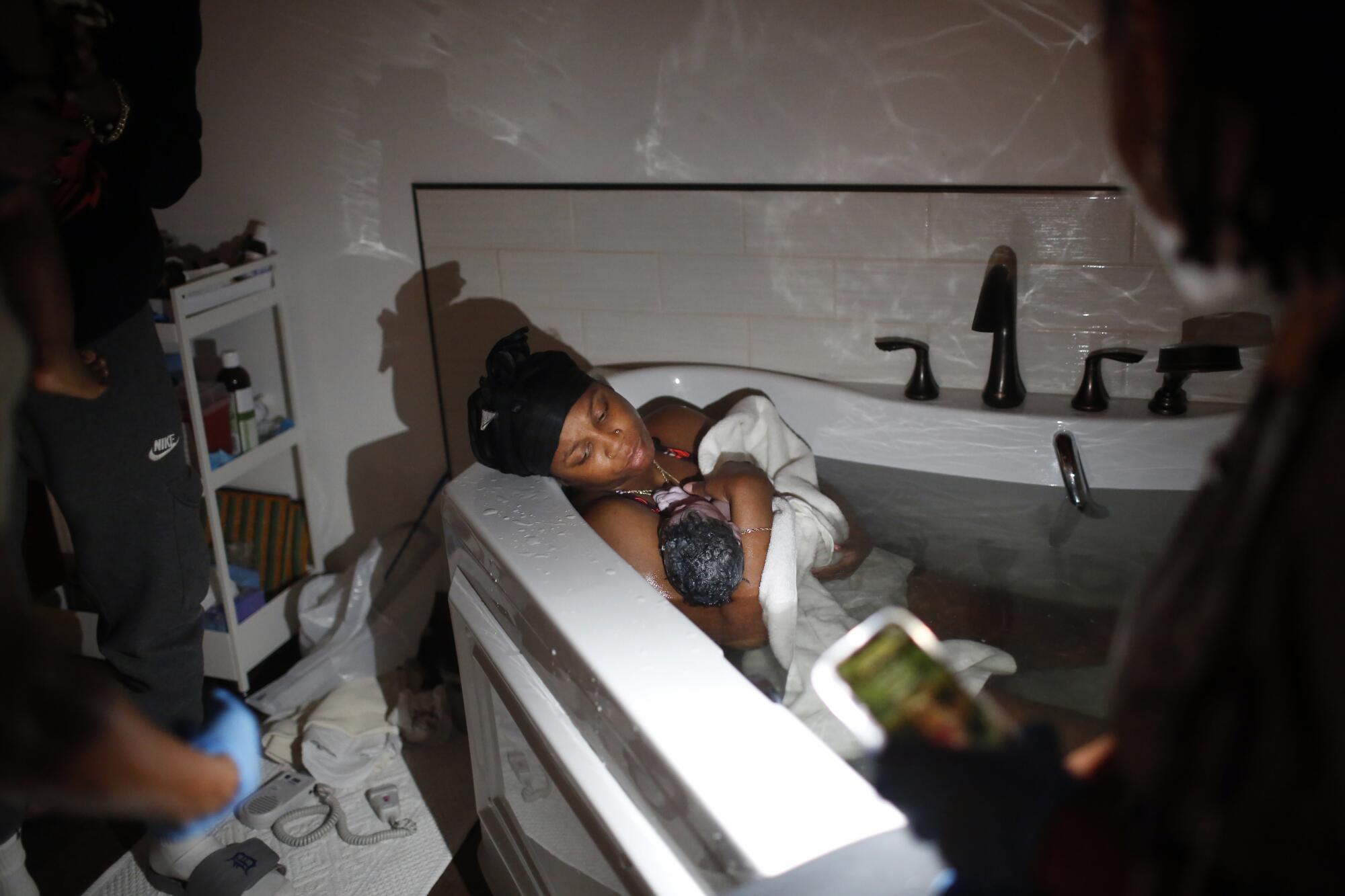
I was 31 weeks pregnant when Ashanique Nelson-Cavil was delivering her baby in the birth room at Kindred Space LA. Throughout the hours-long delivery Kimberly and Allegra worked tirelessly — an intense and amazing experience to witness. All the while, the midwives graciously kept my nutrition and hydration in their thoughts.
Have you eaten? We have water here. Would you like a snack? Can I make you some eggs?
I was drawn to this story, in part, to learn why some people find refuge in an out-of-hospital birth. I had grown up without putting much thought into my birth experience, just assuming — like many in the United States do — that it would take place in a hospital. That I did not question my birth plan for so long is connected to the privilege of having a white body. People don’t walk into my hospital room with racist baggage. I know that makes me lucky, but I also know I don’t deserve that privilege over others.
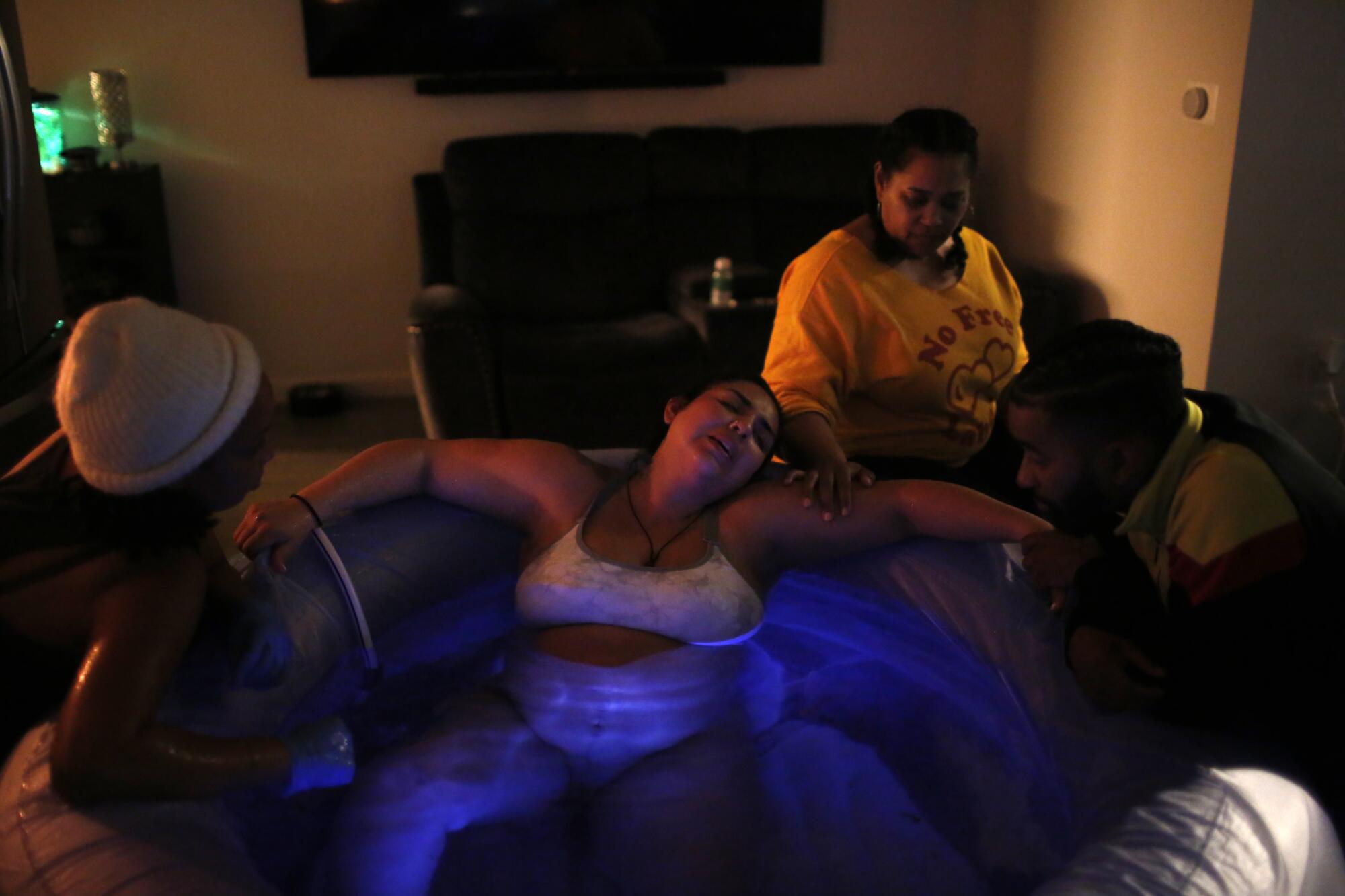
Four of the women I photographed for this story are Black and one is Latina. Each had their own reason for wanting an out-of-hospital birth. There is real trauma connected to troubling statistics about Black infant and maternal mortality rates. These feelings can grip an expectant mother, making pregnancy and delivery feel like a life-or-death experience. No wonder they sometimes feel that the birthing center is where they need to be.
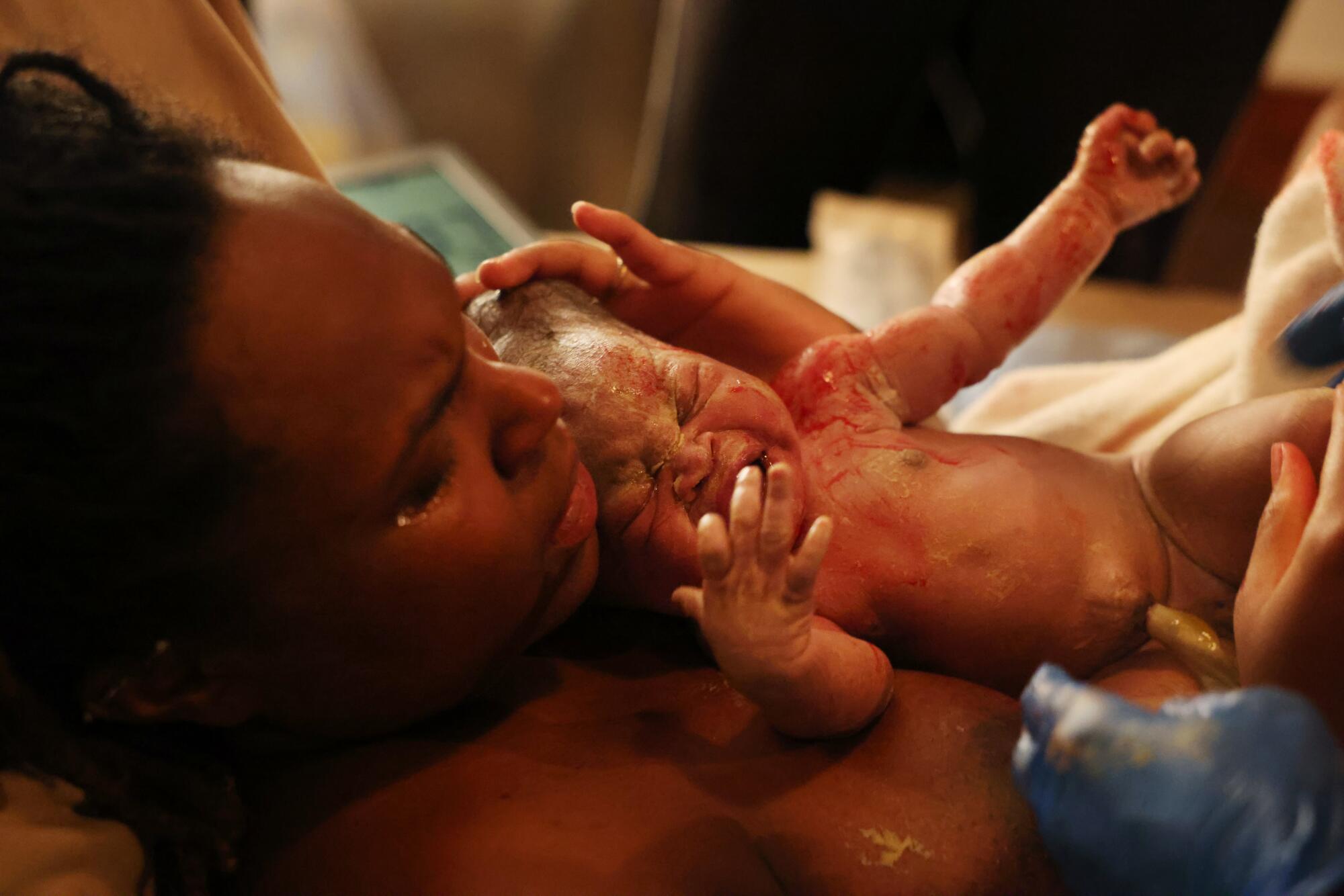
I am happy with the birth experience I had with my first son, Elio, in 2018. My OB-GYN patiently worked with me for over three hours of pushing. I received an epidural and the hospital staff was kind and attentive. I have a lot of gratitude for how everything went. It is comforting to know that hospitals are available if we need or want them. But something in me changed from my first to second pregnancy.
As I spent more time with the birth workers and their patients, I began to question more and more where I wanted to deliver. Where would I feel safest, where would I feel most cared for? My questioning was tangled up with anxiety about COVID-19 and my emotional well-being as a pregnant woman during a pandemic.
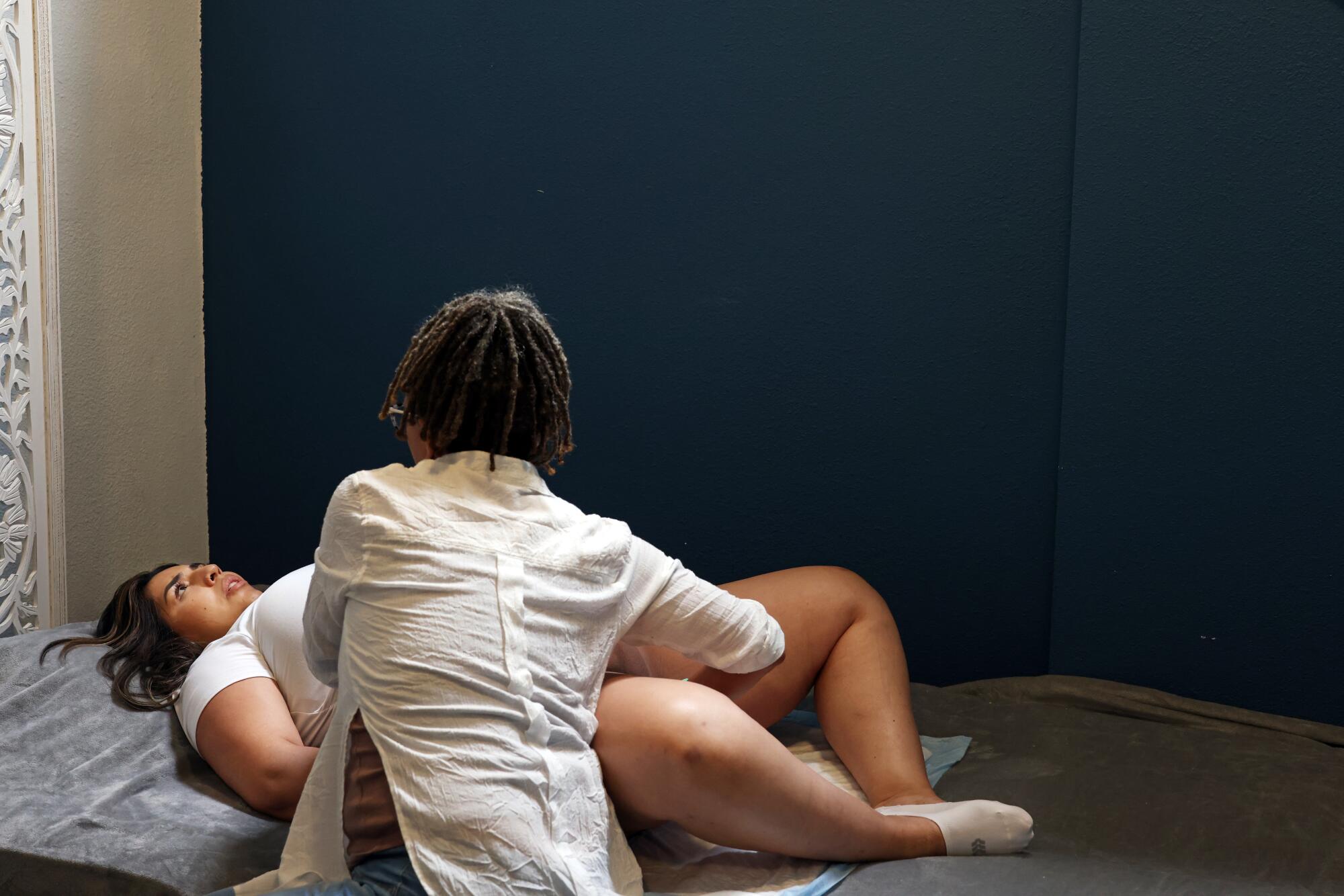
By my seventh month of pregnancy, I had watched Allegra and Kimberly provide intimate and vigilant support to multiple clients. I knew I really wanted to be in their care too, but journalists have to be mindful of conflicts of interest, so there was no way I could have hired them. I spoke to the midwives about this and Allegra recommended other midwives to me. I buried the feelings and continued with my hospital plan.
A few days before my delivery, Allegra and I were texting.
“I try to keep myself from thinking how I might feel a little sad not delivering with you and try instead to think about how amazing it is that my time with you and Kimberly 180’ed me. That impact is a very real and very beautiful thing,” I wrote.
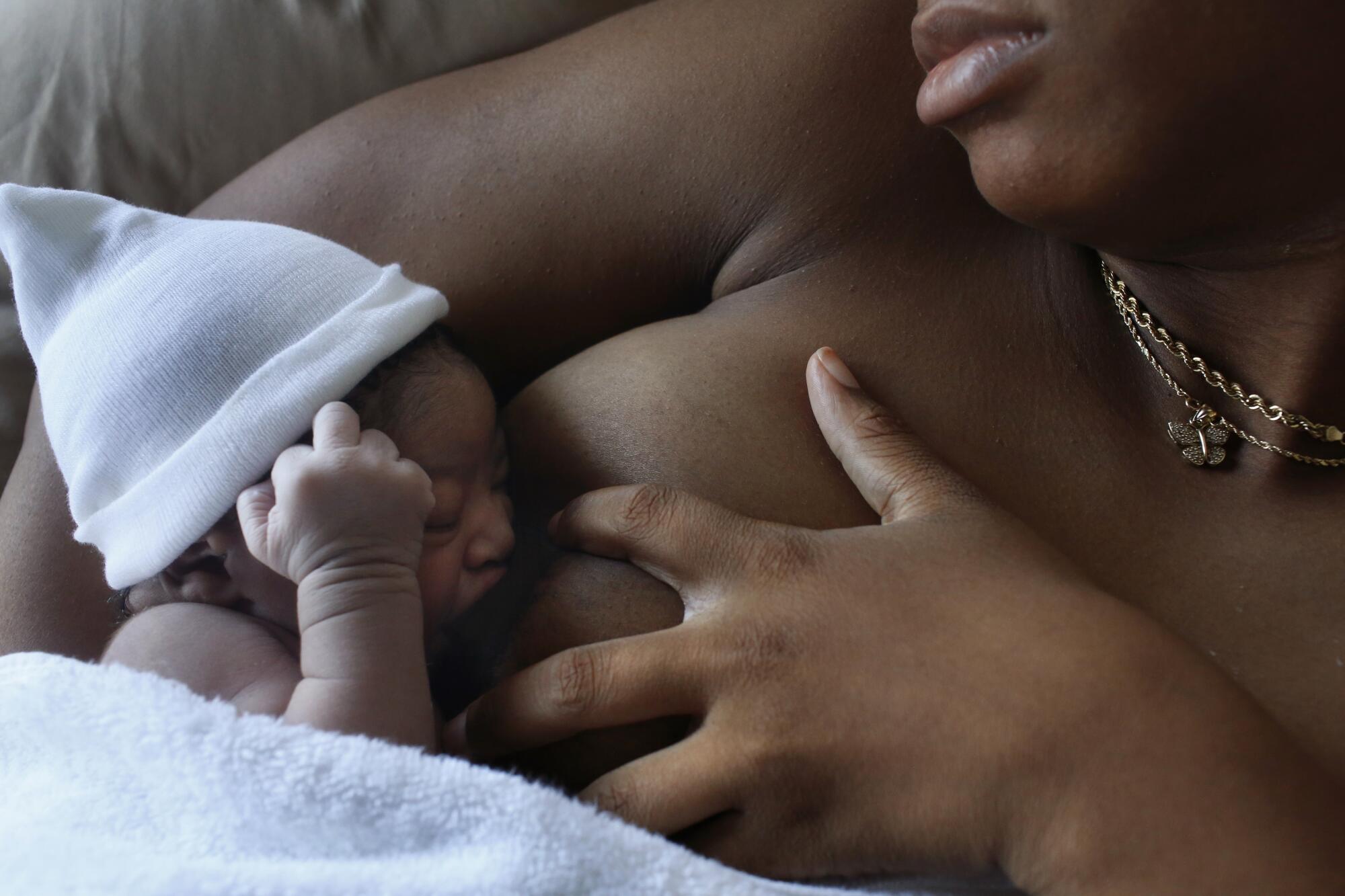
“All love for you and this journey of creation we get to walk together. But there are no mistakes in birth and you will be exactly where you need to be,” she wrote back.
My second son, Coda, was born on July 6. I arrived at the hospital just a half-hour before he came out. My obstetrician hurried to be there with me, but beyond her control she did not make it in time to deliver him, though she did make it for my placenta. As it turned out, I was helped by a midwife — the hospital’s midwife, aided by a team of nurses. Coda had entered the world so quickly, that maybe even if I had hired Allegra and Kimberly, they might not have made it either.
Maybe I ended up exactly where I needed to be.
Four weeks later, Allegra asked to come over. She knew the neighborhood where I lived and was nearby. The visit was sweet. I felt seen. She marveled at the life I created while leaning back into my couch. A true birth worker who cares about the well-being of babies and mothers, whether Mom showed up as a patient or with a camera.
More to Read
Sign up for Essential California
The most important California stories and recommendations in your inbox every morning.
You may occasionally receive promotional content from the Los Angeles Times.

